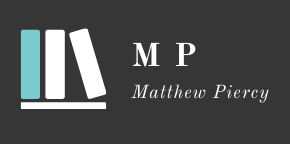“Life is on the wire, the rest is just waiting.”
~Papa Wallenda
The next several months of recruiting season are exciting for many teachers and administrators. Having resigned, lives are once again lived on the “wire.” As a teacher of inquiry there seems to be a valuable ordering to the questions which might propel the decisions so many are about to make. Our “why” paramount, hopefully a clear vision of why we remain in the hallowed field of education. Followed by “what.” Understanding the nature that there is not one market but many. What exactly is most desirable? The “who” you are, what you are able to offer, but also “who” or identity of your potential future employer also is to be considered. And last, the “how.” Trust is what ultimately is required here. Confidence in yourself but moreover, a deep sense of trust in the process, and in life.
Further, we might do ourselves a favor to remember and hold fast to the fact that similar to graduating students, there are no “best” international schools. Unlike United States universities and colleges, there are no rankings of international schools. Even if there were, the list would be flimsy and likely, saturated in bias. For, even the thirty odd years of US News & World Report university and college rankings recently were debunked by Malcolm Gladwell in his Revisionist History podcast. Gladwell brazenly asserts the “rankings game” report to be audaciously inaccurate in measuring the quality of institutions.
Yet, somehow there persists a myth in the international circuit of tiered schools. Reputation is an aspect not to be dismissed, however what makes a “top tier” school is worth sussing out. Besides reputation, “top tier” equates to a more generous package. Such benefits as matching retirement funds, annual return trips home, shipping allowance, and health insurance. Benefits are unarguably measurable. Yet, they do not necessarily equate to the effectiveness of a school, student learning, or most importantly fittingness.
First Rodeo
Snow was being removed from the tarmac as my plane landed in February of 1998. My life was about to be positively changed as I attended my first international teaching job fair. These were the days before the ubiquity of the internet and a physical catalog of schools was provided after mailing in a check and registering. So much has changed in the world and yet, I sometimes grapple to put my finger on how much the international teaching “circuit” has. In many respects it still seems like a small world, especially when a new colleague is quick to connect, “Oh, you taught at X, Y, or Z school. You must know Dan Stiles (or take your pick of names!).”
I entered the fair expecting nothing more than a chance to gain interviewing experience. When I received my first offer, I hurried to the pay phone, mind you this also was before cell phones. “Dad, I was offered a job,” I celebrated. Even more surprising, later in the day another contract was extended. Since this experience, I have utilized the services of two other recruitment agencies and had the pleasure to teach on five different continents. However, only in the last few years have I fully come to appreciate the importance of the term, “fittingness.”
Fittingness
The concept of fittingness is a constant, so long as we are willing to put our lives on a limb. Throughout life there are choices to be made, forks less or more traveled in the road. Stress, usually self-induced, besets a mental fixation on making the “correct” or “right” choice. For grade eleven and twelve students it often centers on higher education. Achieving high IB or SAT scores and being selected into an Ivy or other lofty “league” school. Assuming Harvard is the best for everyone, when in reality some big fish may have a better experience in a smaller “pond.” The reality being one where there is no “best” school. Thankfully there are many “bests,” and the notion that matters most is the fit.
Abundance and a World of Choice
ISC Research, a leading provider of English-medium K-12 international school data, trends and intelligence, reported in 2017 there are more than 9,000 international schools. To operate under the belief that there are but a few “best” schools would be a gross understatement. Seth Godin, best-selling author and entrepreneur, purports there is no scarcity. As we close out on the Industrial Age, the opposite is true. In effect we are living in great abundance and are experiencing a world of choice. Instead of stressing ourselves about the “best” or “top tier” schools, what might make more sense is to create a sort of hierarchy around what matters most to you in your next place of work.
Some Ideas of Criteria to Consider (not in any hierarchical order)
~location of the school and size of the city. An increasing consideration is quality of life, looking at a cities air quality may be one helpful criteria
~size of the school. Small, medium, and large schools all have their pros and cons
~history and tradition of the school. Schools steeped in tradition may sometimes not be as quick to be progressive as tried and true systems of yesteryear may not demand revision. Unable or an unwillingness to be innovative or make quick shifts may lead to feeling like Krishnan Kanthavel, the captain of the Ever Given, as he diagonally blocked the Suez and prevented the transit of nearly everything bought and sold on the planet!
~your personal mission as a professional
~a school’s clarity in mission, vision, values and how these are tangibly being realized
Further, keeping it clear what one ideally wants in a school is vital. A component of this is fully coming to grips with what you have to offer. Schools will want to know this. Moreover, just as a school’s clear identity is important to you, they will want to feel confident in their ability to see an “authentic you.” Envisioning the interview this way may even help dissolve barriers which create anxiety and possibly create more of a conversational feel. Feigning questions at the end is easily discernible. Instead, determine what you really want to know about the role you are applying for, the school, or even the host nation.
A Few Ideas of Questions You May Wonder
~What has your school learned through the pandemic? Or, how has your school positively adapted as a result of COVID?
~How are you leveraging PD as a whole faculty?
~What measures are being taken to ensure students are learning in ways that fit with what the world is asking of graduates today?
~What are the top three strategic goals for your school?
~What does ___________ look like in the classroom?
~What would have been most helpful to know before you joined the school?
“I’m Excited”
Transition can be scary business. Anxiety is normal when we courageously unroot ourselves and pick up our lives after any number of years. However, it is possible to reframe the experience and actually enjoy the process. Alison Wood Brooks, a renowned psychologist found evidence across several studies of reappraising anxiety as excitement. Simple self-talk as saying “I am excited” out loud can actually work, giving credence to the aphorism, “fake it till you make it.” The doors of the world are unhinged. Your vulnerability ultimately has the power to lead to unforeseen opportunities. Trust and enjoy life on the wire.

